Sep 14, 2024
Some Common Phrases
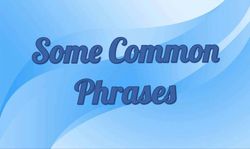
1. Vowels and Consonants
Vowels - a, e, I, o, u
Consonants - b, c, d, f, g, h, j, k, l, m, n, p, q, r, s, t, v, w, x, y, z
2. Collocations - A collocation is a pair or group of words that often go together. It's like a natural combination of words that sounds right.
Here are some examples:
-Heavy rain
-Strong wind
-Bright colors
-Do your homework
-Take a nap
3. Assimilation - when two sounds blend together to create a new sound.
Here are some examples:
"Good night" - "Goo' night" (The "d" in "good" becomes more like the following "n".)
"Have to" - "Haf to" (The "v" in "have" becomes more like the following "t".)
4. Elision - When speakers remove certain sounds or syllables in spoken English.
Here are some examples of elision in English:
• Contractions:
- I'm (I am)
- You're (You are)
- Can't (Cannot)
- Don't (Do not)
- It's (It is)
- She's (She is)
• Informal Speech:
- Gonna (Going to)
- Wanna (Want to)
- Gotta (Got to)
- Gimme (Give me)
- Lemme (Let me)
• Poetry:
- O'er (Over)
- E'er (Ever)
- 'Tis (It is)
- 'Twas (It was)
- Fall'n (Fallen)
• Syllable Elision:
- History (Hist'ry)
- Laboratory (Lab'ratory)
- Vegetable (Veg'table)
• Consonant Elision:
- First light (Firs' light)
- Next time (Nex' time)
- Last night (Las' night)
• Vowel Elision:
- It is ('Tis)
- They are (They're)
- You are (You're)
5. Flap T - When T is pronounced as soft /d/ sound, which often occurs when the T comes between two vowel sounds. The "flap t" is a common pronunciation in American English.
Here are some examples of "flap t" in words:
Words with "t" between vowels:
- Water: Pronounced like "wɑːɾər"
- Better: Pronounced like "beɾər"
- City: Pronounced like "siɾi"
- Metal: Pronounced like "meɾəl"
- Letter: Pronounced like "leɾər"
- Little: Pronounced like "liɾəl"
- Bottle: Pronounced like "baɾəl"
Words with "t" followed by "l" at the end of a word:
- Bottle: Pronounced like "baɾəl"
- Fatal: Pronounced like "feɪɾəl"
- Hospital: Pronounced like "hɑːspɪɾəl"
Phrases with "t" between vowels:
- Get in: Pronounced like "geɾɪn"
- Beat it: Pronounced like "biɾɪt"
- Cut it out: Pronounced like "kʌɾɪt aʊt"
- Not at all: Pronounced like "nɑɾ ət ɔːl"
6. Linking - (Final consonant + vowel) The final consonant sound of one word may get linked with the beginning vowel sound of the next word.
Example:
"Can I have" - "Can'I have" (The "n" sound in "can" links to the "I" sound in "I".)
Phrases
1. All along - this means from the very beginning.
Example sentences:
- "I thought I was the only one who knew the secret, but it turns out you've known all along!"
- "I was so worried about the test, but it turns out I was studying the wrong material all along."
- "We've been friends for years, and I've always admired your creativity. You've been a true inspiration all along."
- "The detective was sure the suspect was innocent, but the evidence proved he was guilty all along."
- "I thought I wanted to be a doctor, but all along, my true passion was writing."
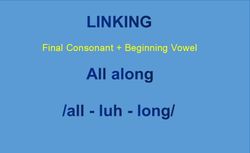
2. Keep in mind / bear in mind - both have the same meaning which means to remember a piece of information when making a decision or just considering a matter.
Here are some sample sentences using the phrases "keep in mind" and "bear in mind":
Keep in mind:
- Keep in mind that the deadline is next week.
- Keep in mind that this is just a suggestion, not a rule.
- Keep in mind that the weather can change quickly in the mountains.
- Keep in mind that everyone has their own opinions. (
- Keep in mind that we're all in this together.
Bear in mind:
- Bear in mind that the project is still in its early stages.
- Bear in mind that we need to be respectful of everyone's time.
- Bear in mind that there are many different ways to approach this problem.
- Bear in mind that the cost of living is high in this city.
- Bear in mind that we need to be prepared for any eventuality.
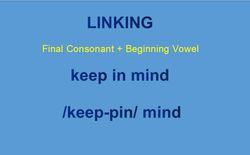
3. At your convenience - means when you want
Collocation - ‘At your earliest convenience’
Example: I would like to schedule a meeting at your convenience.
Here are some sample sentences using the phrase "at your convenience":
Formal:
- "Please let me know if you have any questions. I am available at your convenience."
- "We would appreciate it if you could review the attached document at your convenience."
- "The meeting has been rescheduled for next week. Please let me know if this time works for you, or if you would prefer to meet at your convenience."
Informal:
- "Let me know when you're free to grab coffee. I'm available at your convenience."
- "Feel free to call me at your convenience if you need anything."
- "I'll send you the files later today. You can take a look at them at your convenience."
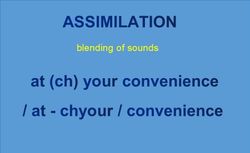
4.Keep (someone) company - to stay with someone so that they are not alone.
Here are some simple sentences using the phrase "keep him/her company":
- I'll stay here and keep her company while you go get help.
- I'm going to keep her company at the hospital tonight.
- The old man asked his neighbor to keep him company for a while.
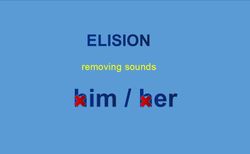
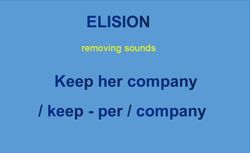
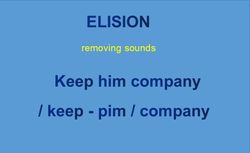
5. Set an example - to behave in a way that other people should copy.
Useful collocation - ‘to set a good example’ / ‘to set a bad example’ (a behavior that shouldn’t copy)
Here are some simple sentences using the phrase "set an example":
- The teacher set an example for her students by always being kind and respectful.
- The CEO set an example for the company by working hard and being dedicated to its success.
- Parents should set an example for their children by being honest and responsible.
- The athlete set an example for young people by overcoming adversity and achieving their goals.
- It's important to set an example for others by being kind and compassionate.
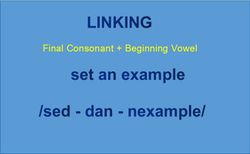
6. Have an eye for (something) - to be good at noticing a particular type of thing.
Here are some simple sentences using the phrase "have an eye for (something)":
- She has an eye for detail, so she's great at proofreading.
- He has an eye for fashion, and always looks stylish.
- The chef has an eye for flavor combinations, creating delicious dishes.
- The photographer has an eye for capturing the perfect moment.
- She has an eye for a bargain, always finding great deals.
- My grandmother has an eye for antiques, and her home is full of beautiful treasures.
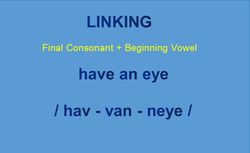
7. At ease - to relax and feel free from worry.
Useful collocations - to look at ease / feel at ease / seem at ease / to put (someone) at ease / put (someone’s) mind at ease
Here are some simple sentences using the phrase "at ease":
Formal:
- "Please feel at ease, I'm here to help."
- "The doctor assured the patient that they were at ease."
- "The soldiers were ordered to stand at ease."
Informal:
- "Don't worry, be at ease, everything will be alright."
- "I'm at ease knowing that my family is safe."
- "He felt at ease in his own home."
- "The speaker put the audience at ease with a humorous anecdote."
- "She was at ease with her decision."
- "The situation is now at ease."
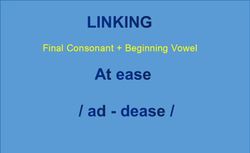
8. In due course / in due time - at a suitable time in the future.
Here are some simple sentences using the phrases "in due course" and "in due time":
In due course:
- "The results of the investigation will be released in due course."
- "We will contact you in due course to schedule an appointment."
- "The project is progressing well, and we expect to see results in due course."
In due time:
- "Everything will fall into place in due time."
- "Your application will be reviewed in due time."
- "The truth will come out in due time."
Key Differences:
- "In due course" emphasizes a specific timeline or process, suggesting that something will happen when it's appropriate or according to a plan.
- "In due time" emphasizes a more general sense of time, suggesting that something will happen eventually, but the exact timing is not specified.
9. Fair enough - used to say something is reasonable or acceptable.
Here are some simple sentences using the phrase "fair enough":
- "I understand your point. Fair enough."
- "You want to go to the movies instead? Fair enough."
- "I didn't realize that was the case. Fair enough, I'll reconsider."
- "You're right, I should have been more careful. Fair enough."
- "You want to take a break? Fair enough, let's come back to this later."
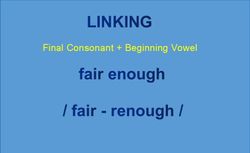
10. Get on (someone’s) nerves - to annoy someone a lot.
Example:
Present - 'Sometimes, he GETS on my nerves.'
Past - 'He GOT on my nerves at the table last night.'
(So the word GET changed into GOT because it happened in the past.)
Present Continuous - 'He’s GETTING on my nerves'.
(So the word GET changed into GETTING because it’s happening in the current time.)
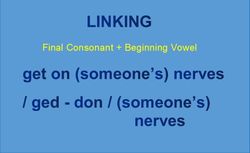
11. In that case - because of the mentioned situation.
Here are some simple sentences using the phrase "in that case":
- "I was planning on going to the park, but it's raining. In that case, I'll stay home and read."
- "The store is closed today. In that case, we'll have to go shopping tomorrow."
- "You don't like the blue shirt? In that case, how about the green one?"
- "The train is delayed, so we'll miss our connection. In that case, we'll have to take a later train."
- "You're not feeling well? In that case, you should stay home and rest.'
12.All over again - to start again from the very beginning
Useful collocations - ‘to do (something) all over again’ / ‘to start all over again’
Here are some simple sentences using the phrase "all over again":
- "I forgot to save my work, so I have to do it all over again."
- "The movie was so good, I want to watch it all over again!"
- "We've been through this argument before, and I don't want to go through it all over again."
- "The kids are playing hide-and-seek all over again, just like they did when they were little."
- "After the storm, the city had to rebuild itself all over again."
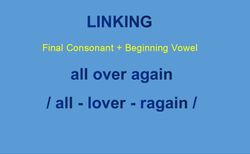
"Great work today!
You've made fantastic progress with those phrases. Remember, practice makes perfect, so keep using them in your everyday conversations. Keep up the great work, and don't be afraid to experiment and have fun with the language!"

By undefined
30 notes ・ 12 views
English
Intermediate